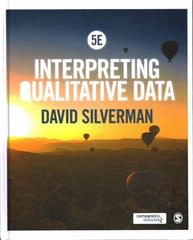Question
If we limit our analysis of human emotion only to the question of whether an emotion is expected to occur, we will find many cross-cultural
If we limit our analysis of human emotion only to the question of whether an emotion is expected to occur, we will find many cross-cultural similarities among human feelings. Indeed, any starving person presumably will be happy to have a piece of bread. However, if we focus on how emotion is experienced and displayed in human activities, we are more likely to see cultural differences. Consider, for example, Japanese sumo wrestlers. If you have a chance to watch a sumo tournament (they are often streamed or broadcast on television), you will discover that the wrestlers never show their emotions. Even if a wrestler experiences a tough loss, spectacular victory, excruciating pain, or the spectators' loud ovation, he remains emotionless. Not a single muscle moves on his face. After seeing these pictures, one may conclude that sumo wrestlers do not experience emotions. However, it is more plausible to assume that the wrestlers feel the emotions, but do not display them. It takes many years of practice, education, and dedication to become a professional sumo wrestler. During this time, the candidates patiently learn how to hide the obvious expressions of their joy, frustration, and other feelings during the competition. In contrast to sumo wrestlers' training, South American and European soccer players are not trained to hide their emotions on the field. Instead they may find it beneficial to exaggerate their expression of pain after a collision with an opponent because the referee - observing the player's display of pain might feel obliged to penalize the opposing team. What other examples of cultural impact on emotional displays can you think of?
Step by Step Solution
There are 3 Steps involved in it
Step: 1

Get Instant Access to Expert-Tailored Solutions
See step-by-step solutions with expert insights and AI powered tools for academic success
Step: 2

Step: 3

Ace Your Homework with AI
Get the answers you need in no time with our AI-driven, step-by-step assistance
Get Started


